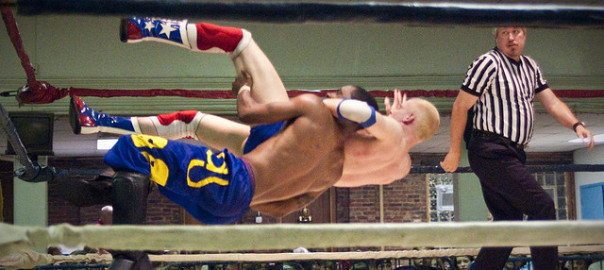In 2012, Wreck-It Ralph joined The Incredibles[1] as an animated film that deals with those most adult of themes: vocation, work, and the meaning of life. Where The Incredibles deals with one’s choice of work and the freedom to use one’s gifts, Wreck-It Ralph deals with the complex relationships between image, identity, and vocation .
Wreck-It Ralph is a video game villain who spends his days destroying an apartment building that is then relentlessly rebuilt by the game’s hero, Fix-It Felix Jr. Ralph feels trapped in his role and longs for something more. In the brilliant opening scene, Ralph attends a meeting of Bad-Anon, a support group for video game bad guys. Attempting to help Ralph see himself in a better light, a zombie tells him, “Good, bad — only labels.”
Work Identity and Self Identity
This might sound like a position of moral relativism, but none of these “villains” are truly bad in a moral sense. They’re entertainers, playing a role given to them by the game designers. Being a “bad guy” is best understood as part of the video game kayfabe. Kayfabe is the depiction of staged story lines of professional wrestling, in which some wrestlers are “good” (“faces,” as in “babyfaces”) and some are “bad” (“heels”). They are all actors, not actual heroes or villains. In the ring, two wrestlers may act like die-hard enemies. In reality, they are coworkers in the same wrestling company, perhaps even good friends. Their wrestling personas have been assigned to them by their manager, all as part of the entertainment.
The same is true of the video game characters in Wreck-It Ralph, except they don’t even have the choice (usually) whether to participate in the entertainment. The characters have been created by the game programmers to fulfill a specific, necessary role in the game. The goal of Ralph’s game is for the hero, Fix-It Felix, Jr., to repair the damage done to an apartment building by Ralph. Like Donkey Kong in the original game of that name, Ralph is the game’s “villain,” but the game would be impossible to play without him. He’s essentially an actor playing a role, not a truly evil villain.
Work Identity and Relationships
The problem, however, is that everyone treats him like a villain, even when the game’s not being played. The apartment dwellers “saved” by Felix in the game treat Ralph like a pariah.When the game celebrates its 30th anniversary, Felix and the other characters have a huge party, without inviting Ralph. Felix, meanwhile, is treated like, well, a hero. Their roles are arbitrary – had the game designers chosen differently, Felix could have been the villain and Ralph the hero. Yet a real chasm has developed between Ralph and the other characters. For him, kayfabe has become reality.
Several years ago, I had a friend who worked as an internal auditor at a large bank. His job was to make sure other departments complied with relevant laws and regulations. Without his work, the bank could have faced huge fines and criminal penalties. He enjoyed the work itself, but felt like he needed to leave the company. An adversarial relationship had developed between the auditors and other departments, who had come to see the auditing team like opponents to slip past, not like members of the same team. The structure of their working relationships had become personal, which in turn affected their working relationships. Understanding and applying financial regulations is tough enough without having to deal with uncooperative coworkers. My friend left to find a job with a company where his work was valued rather than endured.
Almost all of us spend a huge part of our waking hours playing a certain role. Whatever practices we do regularly cannot help but shape us. In Desiring the Kingdom, James K.A. Smith describes the role that “cultural liturgies” play in our everyday lives to direct our desires. If you spend 8 hours a day trying to sell the most of a certain kind of security – or trying to comply with current financial laws and regulations – that’s going to influence the rest of your life whether you intend it to or not.
The Fleeting Nature of Our Work Identity
A major problem with understanding our identity through our work, however, is that our work is unstable and temporary. Career changes, changes in our life status, changes in the economy, and involuntary changes in our work combine to make it impossible for us to say with certainty how long we are going to be doing a particular job.
Further, most of us remain in a particular work based on our usefulness. When that usefulness comes to end, so does our work. Even world-class athletes find themselves out of work, and all of us face the prospect of our “final retirement.” This is true whether or not we are paid for our work; if we define ourselves in terms of caring for our children, there comes a day when our children no longer need our care (or, at least, no longer need it in the same way). Parents who can’t cope with this major transition face years of confusion and frustration.
Because it’s inevitable that our work will influence our identity, we must pay attention to both the kind of work we are doing and the ways it’s influencing us. Our ultimate identity, however, must be based in something other than whatever labels assigned to us by our work.
Photo credit: Tim Hamilton
- Named by Christian Legal Society’s Mike Schutt as the best movie on Christian vocation. ↩

